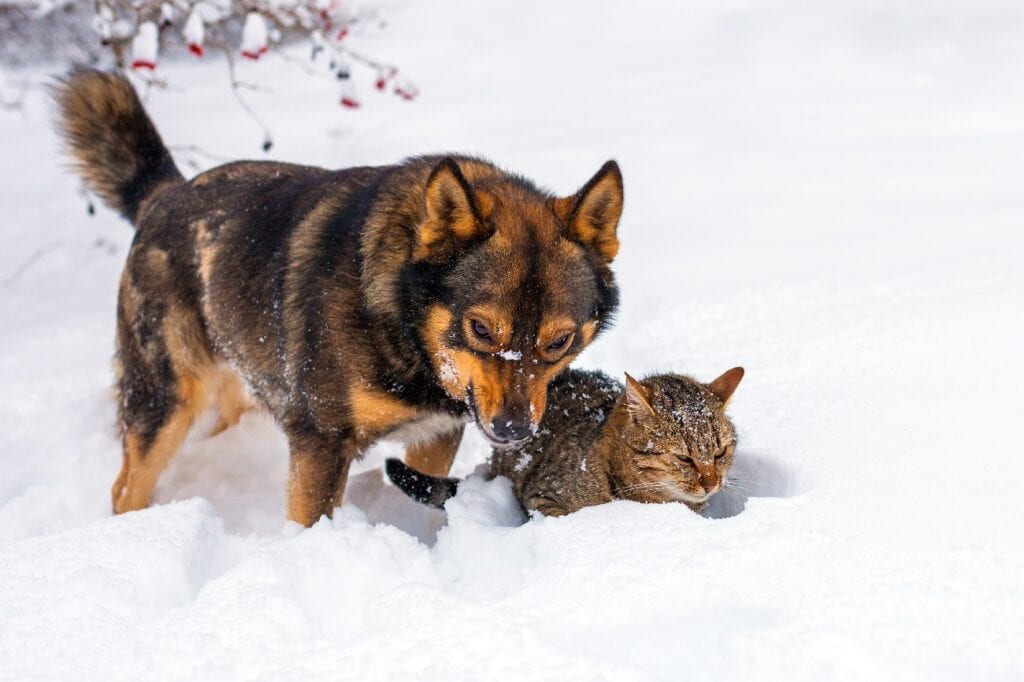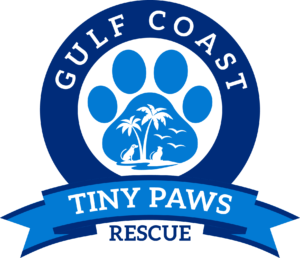by Anne Vaughan, Volunteer
"Fostering is very rewarding".
In the last year or so, we've had about 35 kittens live with us as fosters. It hasn't always been easy but it's been an amazing experience. Fortunately, we've had way more positive experiences than negative. Everytime we get a new kitten to foster, I say the same thing to Anne, "this is the cutest one yet!"
Steve R. Smith (Anne's husband), Board of Directors
How We Started Fostering
We debated fostering kittens for about a year. In 2019, we saw a post on NextDoor that the local shelter needed kitten fosters. So, I completely filled out the required kitten foster application. The next morning, I got a call asking us to pick up two approximately 10 week old kittens. They gave us a litter box, food, and a small bed. We understood it was our job to give these foster kittens whatever they needed until they were to be adopted.
Within a couple of days, I received an email with general information and rules on fostering kittens. We were also assigned a volunteer mentor with about 30 years of foster cat experience. We didn’t realize at the time that we would get or that we would need a mentor. One of our first kittens was partly feral, spending some of her time hiding and other times hissing. She would not let us touch her. Our mentor helped us with a plan to socialize our semi-feral foster kitten. The plan included forced love and petting instead of letting her hide. We all wanted her to be adoptable, and not having experience with feral cats, we weren’t sure how to handle the situation without our mentor’s guidance.
Right: our first “foster fail”: Samantha (aka Sam).
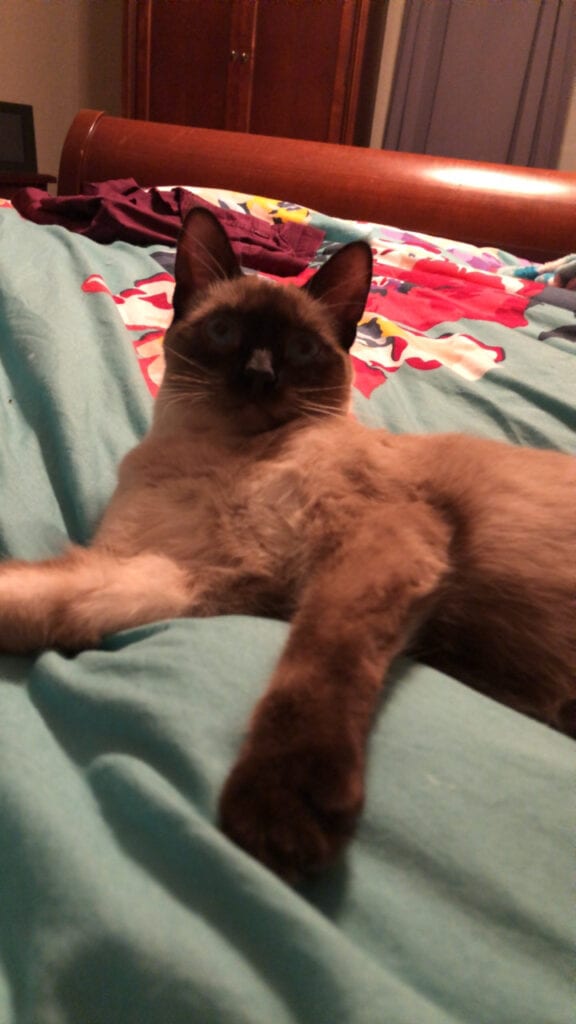
Our First Experiences
Our next set of kittens were on the verge of starting to eat wet food. The shelter gave us bottles, nipples, and kitty formula and then sent us home. We felt woefully unprepared to bottle feed a nursing kitten. Our mentor came over and helped us with bottle feeding basics and how to transition to wet and dry cat food. This set of kittens also introduced us to ringworm! Our mentor diagnosed it immediately and provided anti-fungal shampoo and spray for treatment (no, we did not get ringworm). We kept getting new kittens as ours were adopted out.
Medical Needs
Many of these kittens are found in various sizes of litters as small babies. Most of the time they are without their mothers and living on the streets, homeless. So, they typically have medical needs ranging from easily treatable to more complex situations.
We’ve encountered worms, fleas, bacteria, viruses, Cerebellar hypoplasia (CH), and eye infections just to name a few. Our mentor was always available and has spent a lot of time helping us deal with issues.
We’ve worked hard to keep track of weights, medicines given, and any treatment plan that we’re asked to apply. We’ve gotten pretty good at following the protocols that have been given to us by our mentor. Whether it’s putting Little Remedies or other drops in eyes and noses, using the antifungal spray multiple times per day to treat for ringworm, giving the antifungal baths for the same reason (they have to keep it on them for 10 minutes), or giving antivirals – we faithfully treat our little charges.
As we’ve talked with and gotten guidance from our mentor, my husband has gotten more comfortable bottle feeding the youngest of the babies we get as fosters. It’s pretty cute to see a little one chug down a bottle in nothing flat.
Gulf Coast Tiny Paws Rescue
We now foster kittens through this non-profit, Gulf Coast Tiny Paws Rescue. This non-profit was created by our mentor in order provide rescue services to animals in the Galveston County area. Since we experienced first-hand how much our mentor cared for the animals, the expertise she had, and the support she provided us for all our problems, we decided to join her when she started GCTPR.
Right: the author’s two “foster fails”: Samantha (aka Sam) and Sophie
Gulf Coast Tiny Paws Rescue Mentor Program
A good mentor program is key to improving kitten survival rates. Mother cats have large litters because of the potentially high mortality rate if kittens are left without human care. We’ve consistently proven that if you follow our protocols, we can save more kitty lives! That’s because our mentor program is high touch. Meaning we have open lines of communications and our mentors are available to do house calls.
Here is what you can expect from your mentor as a foster volunteer with Gulf Coast Tiny Paws Rescue:
- Your first stop for ANY questions. In fact, questions are great because one of our goals is to educate and train fosters in all aspects of caring for our rescues cats and dogs
- Training – we will help you with what you need to do to take care of the health of the animals and monitor their progress – from what they’re eating to weighing them (it helps to make determinations if they’re sick), analyzing potential medical or behavioral problems with kittens and puppies, etc
- Consultation on dealing with issues – including medical and behavioral problems. For example, dealing with the semi-feral kitten we fostered fairly early on
- In home visits as needed – to help with any feeding issues, teaching you how to properly administer medications, checking for dehydration, worms, or periodic health checks to see if they have coccidia, and addressing your concerns. There are a variety of medical issues that kittens can inherit from their mothers while living on the streets
- Delivery of your foster animals to your house
- Babysitting your fosters when you go out of town
- Removal of any animals with severe medical problems that need special attention or vet care
- Help you get supplies including food for your foster animals
- Assistance with potential adopters
Wrapping it Up
Fostering has been a wonderful experience for us! We have enjoyed the total support from our mentor to help us with problems or questions we have with care of the kittens, and we have learned so much over the last year and have confidence that we can handle almost any issue that comes up.
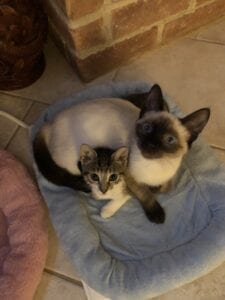
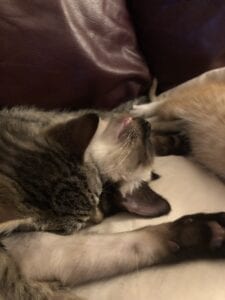
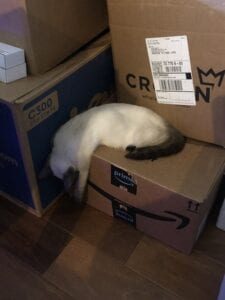
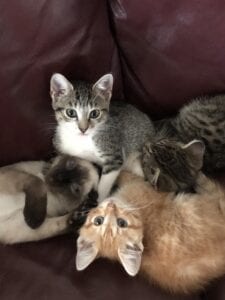
It does take a commitment – fosters must ensure the kittens are eating, drinking, and monitor their health and look for changes, but the love, fun, and entertainment value you get in return are priceless! And, kittens are so much fun when they play with each other. A potential side effect of fostering is the development of a habit of taking pictures anytime your foster kitten or their litter mate “does something cute” which, we can tell you from personal experience is practically all the time! We literally have probably a thousand pictures and assorted videos of kittens (and our nearly adult cats) playing with laser pointers, feather toys, balls, exhibiting crazy behavior, and otherwise just being adorable. It could be sleeping on the couch, or in “odd places” too.
We have certainly had emotional highs and lows. We’ve become immune to the inspection of poop and the smaller kitties that my husband, Steve calls “poop flingers”. They can be amazingly dirty little things, particularly when they’re just learning how to eat wet food or just using the little litter box daily. We now own or have borrowed several different sizes of dog crates, pens, and enclosures that we use to isolate kittens to try and keep everybody healthy.
We’ve also enjoyed socializing kittens in such a way that they like to be around and with us. We play with them, spend time with them, and pick them up and love on them frequently.
If you’ve never fostered or for that matter, you’ve never had a cat or a kitten, we’ve written a short blog post to give people a little more information about what to expect when you adopt a kitten or a cat. You can click below and read the article.
If you've never owned a cat, or fostered, read the article below!
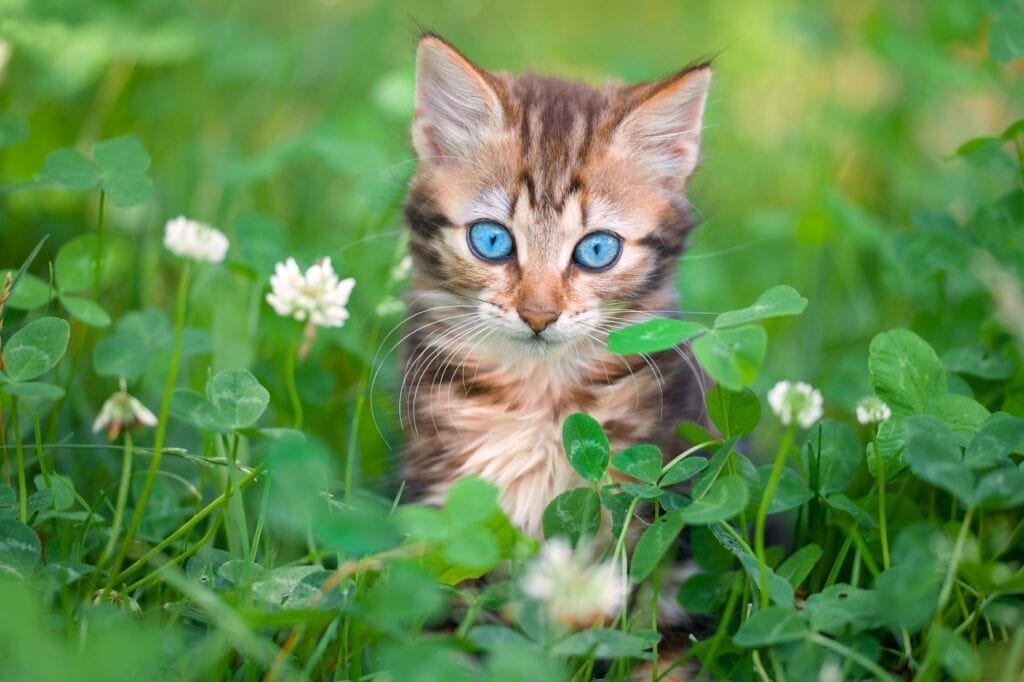
Why Adopt a Cat?
Adopt a Cat Why should I adopt a cat? Cats are a riot. If you’ve never had one as a
Below: a very small selection of the foster kittens had in our home over the last year.
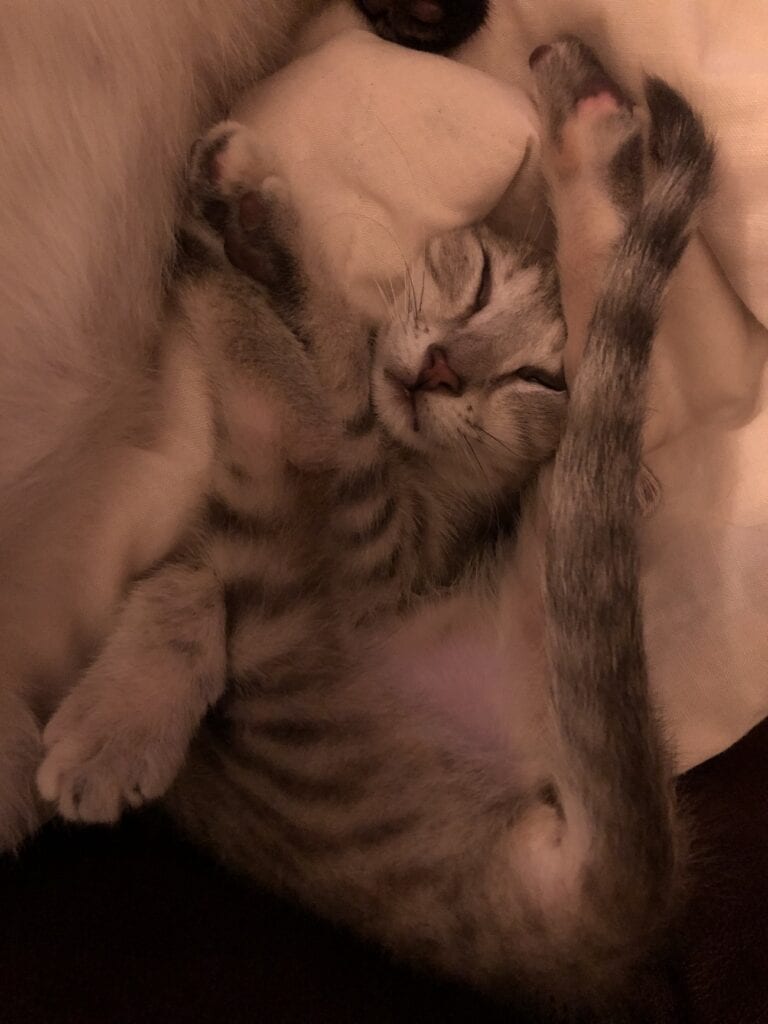
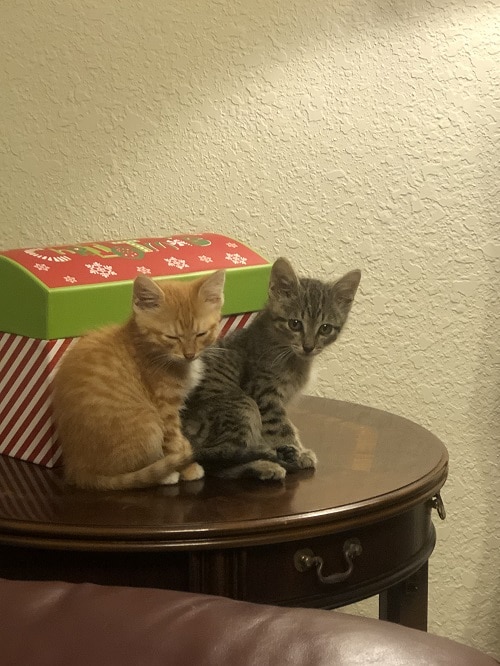
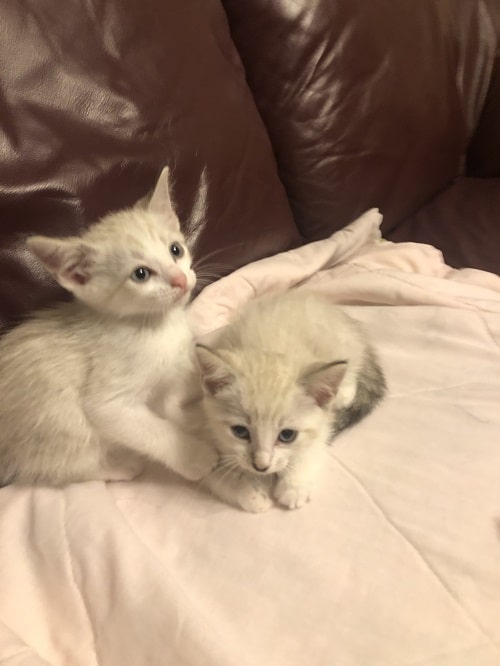
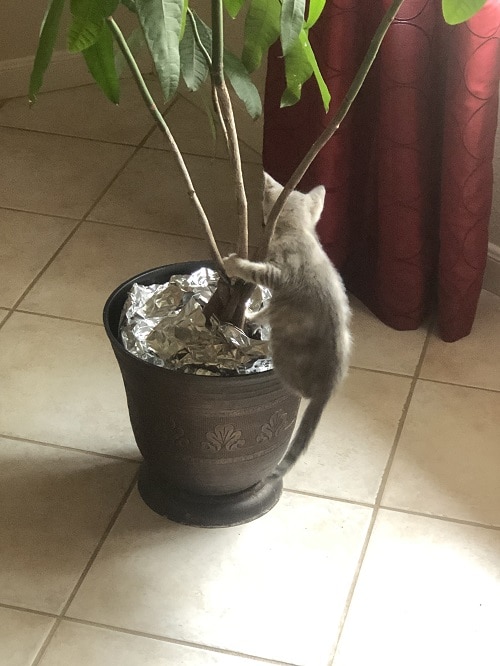
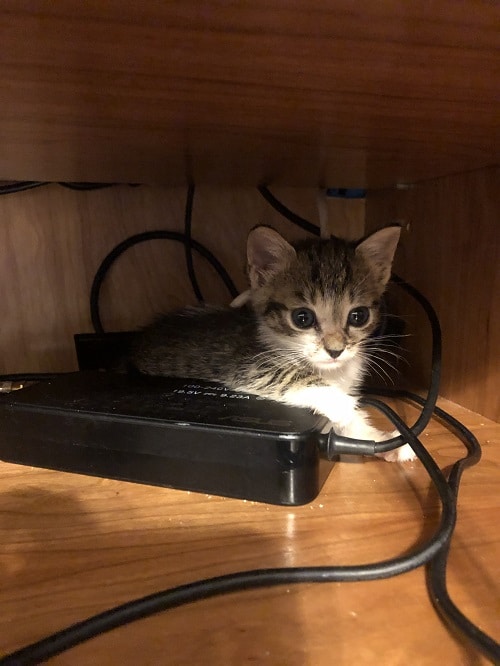
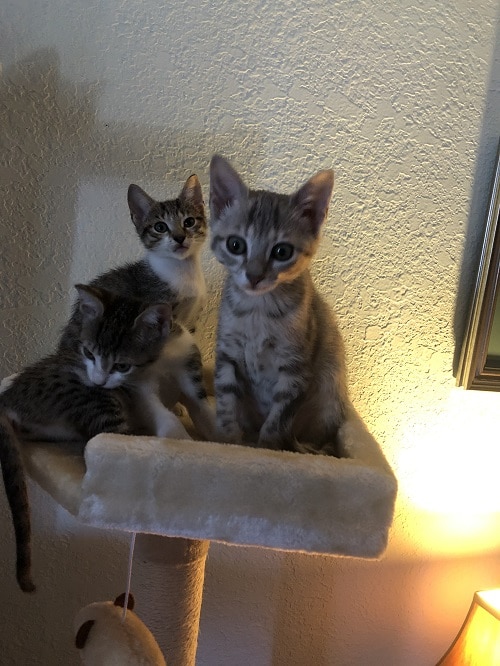
Have questions about having a cat as a pet
Contact us
